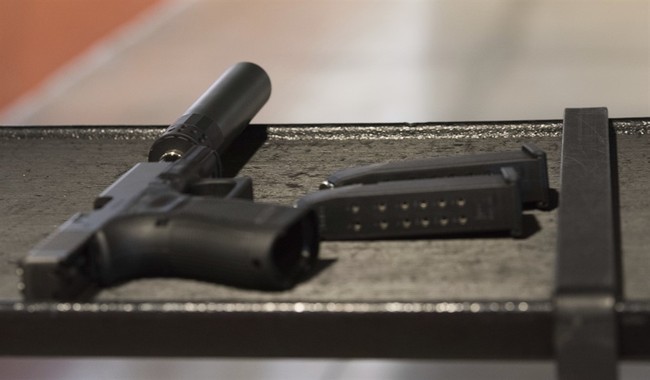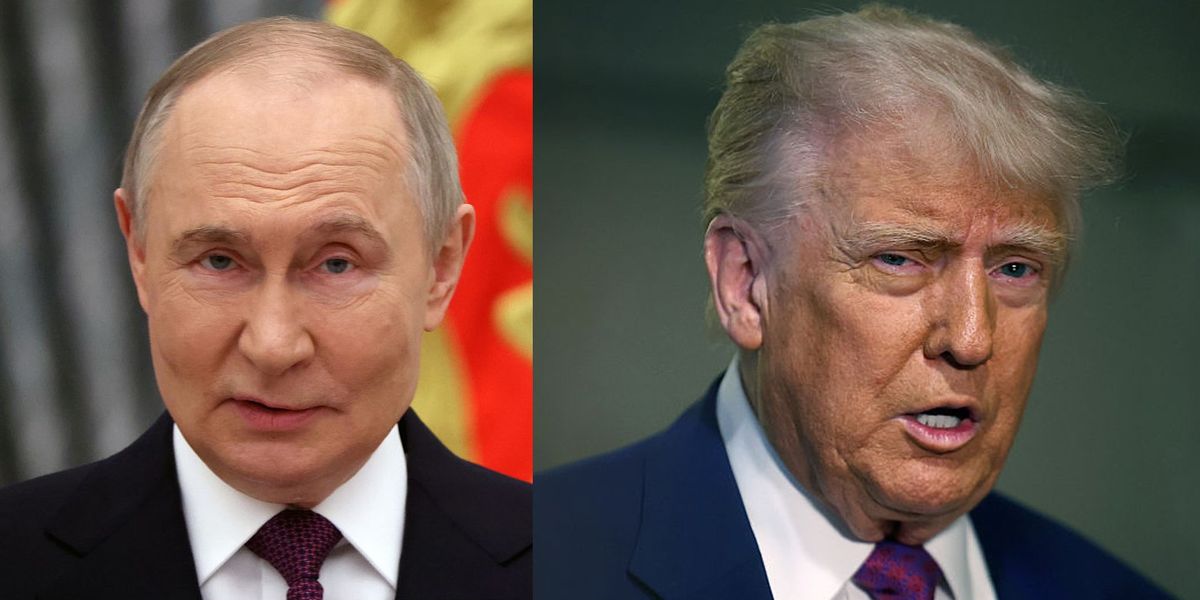The fight over removing suppressors from the National Firearms Act has primarily moved to the Senate for the moment, but there are legal and political battles still being fought over the devices in courthouses and committee chambers, and the Trump administration has given both sides some ammunition in its latest filing in a case called U.S. v. Peterson.
Louisiana resident George Peterson was charged with possession of an unregistered suppressor in 2022, and was found guilty in U.S. District Court. Earlier this year a three-judge panel on the Fifth Circuit upheld that conviction, ruling that suppressors aren’t protected by the Second Amendment because they’re not “arms”.
Peterson has hired a team of seasoned Second Amendment attorneys including David H. Thompson, Peter A. Patterson, and Cody J. Wisniewski to represent him as he seeks an en banc review of the panel’s decision, but in its latest filing the DOJ is still advocating against a broader review by the entire appellate court.
The good news is that the DOJ has, for the first time that I’m aware of, adopted the position that suppressors are, in fact, protected arms under the Second Amendment. In a filing last Friday, Acting U.S. Attorney for the Eastern District of Louisiana Michael M. Simpson noted that the federal government as “re-evaluated” its previous position.
In the view ofthe United States, the Second Amendment protects firearm accessories and components such as suppressors. As a result, restrictions on the possession of suppressors burden the right to bear arms, and a ban on the possession of suppressors or other similar accessories would be unconstitutional. The government’s earlier argument to the contrary was incorrect.
The bad news is that in that same filing the DOJ contends that the inclusion of suppressors in the National Firearms Act, and indeed the NFA itself, is not an infringement on the right to keep and bear arms.
But the National Firearms Act’s registration and taxation requirement is constitutional because it imposes a modest burden on a firearm accessory that is consistent with this Nation’s historical tradition because suppressors are specially adaptable to criminal misuse. For this reason, the panel correctly affirmed Peterson’s conviction.
Gun control groups are going to have a field day with the Trump administration’s position that suppressors are “specially adaptable to criminal misuse” at the same time Republicans are trying to de-regulate them. And Second Amendment advocates should be up in arms (so to speak) over Simpson’s contention that the registration and taxing of a constitutionally-protected item are just “modest” burdens on the right to keep and bear arms.
Simpson’s argument that the NFA’s registration requirement is no big deal is extraordinarily bad. Current federal statute bars the government from establishing or maintaining a list of gun owners, but now the DOJ (or at least one U.S. Attorney) is essentially arguing that requiring gun owners to register their arms with the federal government wouldn’t violate the Second Amendment. Simpson takes pains to stress that taxing suppressors is okay because they’re supposedly “pose a special danger of misuse”, but he never really explains why or if registration would apply only to those arms that are especially dangerous (at least in the eyes of the goverment).
Simpson’s take on NFA taxes is also wildly inaccurate. The NFA’s tax requirement was meant to pose a substantial burden on buyers of restricted items, and while a $200 transfer tax and $200 making tax isn’t as cost-prohibitive as it was back in 1934, tacking an additional $400 on the price of a suppressor does mean that some folks will be unable to afford one. But Simpson maintains that those taxes (again, at least when it comes to arms that pose a “special danger of misuse”) “are no more burdensome than a variety of other constitutional regulations, such as the requirements that a firearm purchaser obtain a background check or that a person licensed to carry a firearm undergo safety training and pay a reasonable fee.”
Simpson argues that the $200 transfer tax is “modest”, but he fails to set a threshold for an immodest or unreasonable tax, which gets us to the ugly news surrounding suppressors.
On May 22, during an early morning floor debate over the legislation, Rep. Nancy Pelosi (D-Calif.) registered her opposition to the bill. In reference to the suppressor tax reduction, she stated, “then, of course, as we mentioned about the silencers, it’s just beyond comprehension.”
According to the former speaker of the House, it is incomprehensible that lawmakers want to eliminate a prohibitory tax scheme on harmless devices that help their constituents lawfully exercise their Second Amendment rights with reduced risk of hearing damage.
Yet the longtime representative from San Francisco still didn’t manage to provide the worst take of the week. That dubious distinction belongs to Rep. Madeleine Dean (D-Pa.) who argued the current tax on suppressors doesn’t go far enough, and law-abiding Americans already enjoy too much freedom.
In a meeting of the House Rules Committee, Dean claimed to be shocked by the level to which Americans are already exercising their right to keep and bear arms. The congresswoman stated,
You know what the dollars are? It’s $1.4 billion over 10 years. I did the math. That means something like 700,000 silencers are sold in this country a year. That baffles me. I don’t know if that’s accurate, but by the numbers and by the math, that’s what we’re talking about.
Dean took issue with the fact that the suppressor tax has not kept up with inflation and acknowledged its infringing nature: “the tax was used to try to discourage the purchasing of silencers.”
The congresswoman went on to elaborate her preferred scenarios. She said,
If we doubled it, if we just went to $400, you could sell only half as many and not lose a penny in revenue. If we tripled it, you might actually discourage some sales of silencers. Wouldn’t that be a good thing for us to be doing in this committee?
Dean seems to have a better grasp of history than Simpson does, unfortunately. The NFA taxes were absolutely meant to discourage the purchase and possession of restricted items, which is one of the reasons why 2A advocates argue that the National Firearms Act is unconstitutional. Dean and her fellow Democrats will jack up the transfer and making taxes at the first given opportunity, so it’s critical that the Trump administration not only recognize that suppressors (and I would argue, other NFA items) are protected by the Second Amendment, but that the National Firearms Act cannot be reconciled with our Second Amendment rights.
The DOJ has taken some historic steps to protect and preserve the the right to keep and bear arms under President Trump’s watch, but this is a huge misstep, and one that needs to be rectified going forward. Removing suppressors from the NFA through Trump’s big, beautiful bill would be a big help, but ultimately the administration needs to revise its position on the NFA itself. If not, some of the arguments the DOJ makes over the next four years could prove to be a huge gift to the gun control lobby.
Read the full article here







![Off-Duty TX Deputy Shoots Suspect Trying to Enter Car With His Baby Inside [WATCH] Off-Duty TX Deputy Shoots Suspect Trying to Enter Car With His Baby Inside [WATCH]](https://www.rvmnews.com/wp-content/uploads/2025/11/2025.11.02-11.09-rvmnews-69073be2e7b80.jpg)



![Karine Jean‑Pierre Makes Stunning ‘Cheap Fakes’ Admission During Testimony to Congress [WATCH] Karine Jean‑Pierre Makes Stunning ‘Cheap Fakes’ Admission During Testimony to Congress [WATCH]](https://www.rvmnews.com/wp-content/uploads/2024/10/2024.10.09-04.17-rvmnews-6706ac970376f.jpg)
